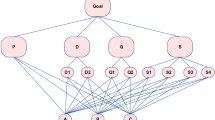Abstract
The increasing use of distributed energy resources changes the way to manage the electricity system. Unlike the traditional centralized powered utility, many homes and businesses with local electricity generators have established their own microgrids, which increases the use of renewable energy while introducing a new challenge to the management of the microgrid system from the mismatch and unknown of renewable energy generations, load demands, and dynamic electricity prices. To address this challenge, a rank-based multiple-choice secretary algorithm (RMSA) was proposed for microgrid management, to reduce the microgrid operating cost. Rather than relying on the complete information of future dynamic variables or accurate predictive approaches, a lightweight solution was used to make real-time decisions under uncertainties. The RMSA enables a microgrid to reduce the operating cost by determining the best electricity purchase timing for each task under dynamic pricing. Extensive experiments were conducted on real-world data sets to prove the efficacy of our solution in complex and divergent real-world scenarios.
Similar content being viewed by others
Abbreviations
- d t :
-
The total load demands at the time slot t
- η t :
-
The electricity unit price from external electricity resources at the time slot t
- δ t :
-
Electricity purchase from external resources at the time slot t
- Θ:
-
The set of all the load tasks
- τ i :
-
τi = {ri,ei,pi,di}. τi denotes the task i, with its release time ri, execution time ei, power consumption pi, and absolute deadline di.
- θ(τ i)(t):
-
The status of the task i at the time t, θ(τi)(t) = 0 means task i is idle at the time t while θ(τi)(t) = 1 means task i is executing at the time t.
- l t :
-
The total electricity load demands at the time slot t
- α t :
-
Total electricity generations from all the local DGs at the time slot t
- \(\alpha _t^{\rm{e}}\) :
-
Total efficient electricity generations from all the local DGs at the time slot t
- β c :
-
The battery capacity
- β t :
-
The battery storage at the time slot t. The range is from the minimum 0 to the maximum βmax.
- b t :
-
The battery utilization rate at the time slot t. When its value is positive (bt ⩾ 0), the battery is charging at the moment; otherwise (bt < 0), the battery is discharging at the moment. C(δ) The cost function representing the total operating cost of the microgrid
References
Harsh P, Das D. Energy management in microgrid using incentive-based demand response and reconfigured network considering uncertainties in renewable energy sources. Sustainable Energy Technologies and Assessments, 2021, 46: 101225
Gouveia C, Moreira J, Moreira C L, et al. Coordinating storage and demand response for microgrid emergency operation. IEEE Transactions on Smart Grid, 2013, 4(4): 1898–1908
Li Y, Li K, Yang Z, et al. Stochastic optimal scheduling of demand response-enabled microgrids with renewable generations: An analytical-heuristic approach. Journal of Cleaner Production, 2022, 330: 129840
Verbraeken J, Wolting M, Katzy J, et al. A survey on distributed machine learning. ACM Computing Surveys, 2021, 53(2): 1–33
Nwulu N I, Xia X. Optimal dispatch for a microgrid incorporating renewables and demand response. Renewable Energy, 2017, 101: 16–28
Mazidi M, Zakariazadeh A, Jadid S, et al. Integrated scheduling of renewable generation and demand response programs in a microgrid. Energy Conversion and Management, 2014, 86: 1118–1127
Shi W, Li N, Chu C C, et al. Real-time energy management in microgrids. IEEE Transactions on Smart Grid, 2017, 8(1): 228–238
Elsied M, Oukaour A, Youssef T, et al. An advanced real time energy management system for microgrids. Energy, 2016, 114: 742–752
Yan J, Menghwar M, Asghar E, et al. Real-time energy management for a smart-community microgrid with battery swapping and renewables. Applied Energy, 2019, 238: 180–194
Carpinelli G, Mottola F, Proto D. Optimal scheduling of a microgrid with demand response resources. IET Generation, Transmission & Distribution, 2014, 8(12): 1891–1899
Jung S, Yoon Y T. Optimal operating schedule for energy storage system: Focusing on efficient energy management for microgrid. Processes (Basel, Switzerland), 2019, 7(2): 80
Astriani Y, Shafiullah G M, Shahnia F. Incentive determination of a demand response program for microgrids. Applied Energy, 2021, 292: 116624
Ebrahimi M R, Amjady N. Adaptive robust optimization framework for day-ahead microgrid scheduling. International Journal of Electrical Power & Energy Systems, 2019, 107: 213–223
Kumar K P, Saravanan B. Day ahead scheduling of generation and storage in a microgrid considering demand side management. Journal of Energy Storage, 2019, 21: 78–86
Aluisio B, Dicorato M, Forte G, et al. An optimization procedure for microgrid day-ahead operation in the presence of CHP facilities. Sustainable Energy, Grids and Networks, 2017, 11: 34–45
Khodaei A, Bahramirad S, Shahidehpour M. Microgrid planning under uncertainty. IEEE Transactions on Power Systems, 2015, 30(5): 2417–2425
Motevasel M, Seifi A R. Expert energy management of a micro-grid considering wind energy uncertainty. Energy Conversion and Management, 2014, 83: 58–72
Luo L, Abdulkareem S S, Rezvani A, et al. Optimal scheduling of a renewable based microgrid considering photovoltaic system and battery energy storage under uncertainty. Journal of Energy Storage, 2020, 28: 101306
Alotaibi I, Abido M A, Khalid M, et al. A comprehensive review of recent advances in smart grids: A sustainable future with renewable energy resources. Energies, 2020, 13(23): 6269
Aguera-Pérez A, Palomares-Salas J C, Gonzalez de la Rosa J J, et al. Weather forecasts for microgrid energy management: Review, discussion and recommendations. Applied Energy, 2018, 228: 265–278
Olivares D E, Lara J D, Canizares C A, et al. Stochastic-predictive energy management system for isolated microgrids. IEEE Transactions on Smart Grid, 2015, 6(6): 2681–2693
Li W, Chang X, Cao J, et al. A sustainable and user-behavior-aware cyber-physical system for home energy management. ACM Transactions on Cyber-Physical Systems, 2019, 3(4): 1–24
Li H P, Wan Z Q, He H B. Real-time residential demand response. IEEE Transactions on Smart Grid, 2020, 11(5): 4144–4154
Zhang C, Kuppannagari S R, Kannan R, et al. Building HVAC scheduling using reinforcement learning via neural network-based model approximation. In: Proceedings of the 6th ACM International Conference on Systems for Energy-Efficient Buildings, Cities, and Transportation, 2019, 287–296
Lu R, Hong S H, Yu M. Demand response for home energy management using reinforcement learning and artificial neural network. IEEE Transactions on Smart Grid, 2019, 10(6): 6629–6639
Xu S C, Wang Y X, Wang Y Z, et al. One for many: Transfer learning for building HVAC control. In: Proceedings of the 7th ACM International Conference on Systems for Energy-Efficient Buildings, Cities, and Transportation, Virtual Event, Japan, 2020
Ferguson T S. Who solved the secretary problem? Statistical Science, 1989, 4(3): 282–289
Bajnok B, Semov S. The “thirty-seven percent rule” and the secretary problem with relative ranks, 2015, arXiv preprint:1512.02996
Xia C, Li W, Chang X, et al. Lightweight online scheduling for home energy management systems under uncertainty. IEEE Transactions on Sustainable Computing, 2022, 7(4): 887–898
Babaioff M, Immorlica N, Kempe D, et al. A knapsack secretary problem with applications. In: Approximation, Randomization, and Combinatorial Optimization. Algorithms and Techniques. Springer, 2007, 16–28
Denis V. Lindley. Dynamic programming and decision theory. Journal of the Royal Statistical Society. Series C, Applied Statistics, 1961, 10(1): 39–51
Australian Energy Market Operator. AEMO data model archieve. 2021, available at the website of nemweb
Zico Kolter J, Johnson M J. Redd: A public data set for energy disaggregation research. In: Workshop on Data Mining Applications in Sustainability (SIGKDD), San Diego, CA, 2011, 25: 59–62
Kelly J, Knottenbelt W. The UK-DALE dataset, domestic appliance-level electricity demand and whole-house demand from five UK homes. Scientific Data, 2015, 2(1): 1–14
Author information
Authors and Affiliations
Corresponding author
Rights and permissions
About this article
Cite this article
Xia, C., Li, W., Chang, X. et al. A rank-based multiple-choice secretary algorithm for minimising microgrid operating cost under uncertainties. Front. Energy 17, 198–210 (2023). https://doi.org/10.1007/s11708-023-0874-8
Received:
Accepted:
Published:
Issue Date:
DOI: https://doi.org/10.1007/s11708-023-0874-8




